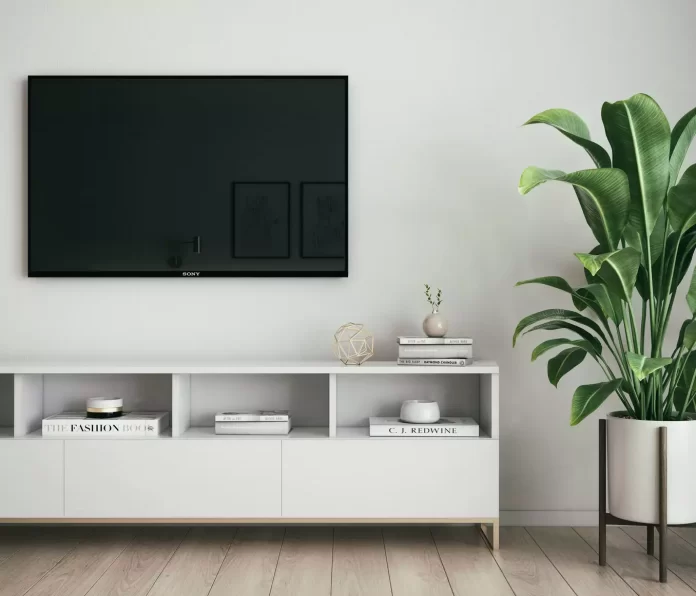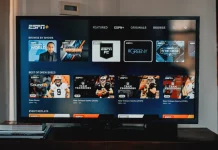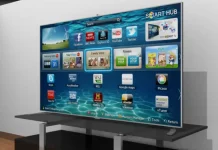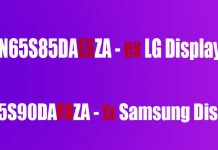A distinctive feature of Sony TVs isn’t only natural color reproduction and surround sound, but also a lot of additional features, such as sound and picture quality. The use of in-house technological developments ensures cinematic sound. And on top of all that, you can also use your Sony Smart TV even more practically thanks to the split-screen function.
This function will help you use your Sony TV together with your smartphone when you want to watch a sporting event or a movie, for example, and video chat with your friend on the big screen. Well, let’s take a closer look at how to use the split screen feature on your Sony Smart TV.
What is a split screen feature?
The life of modern man is already impossible to imagine without a smartphone. E-mail, office applications, messengers, surfing the Internet, social networks – this is just a small part of what even inexpensive smartphones allow you to do today. That’s why people often keep their smartphones in their hands even when watching TV while continuing to browse their favorite social networks or chat with friends in messengers.
Sony offers several convenient technologies in its smart TVs that allow you to take the simultaneous use of a mobile device and TV to a new level. One of these technologies involves the ability to split the TV screen, so you can enjoy watching your favorite TV show and using your smartphone at the same time, simply by dividing the screen into several parts.
In this way, the left side of the screen will continue to show TV broadcasts, while the right side will duplicate the display of your smartphone. Depending on the model, the TV screen can be divided into two to four areas. Each area can display different content: TV broadcast, content from an app (YouTube or any other streaming service), a picture from a smartphone, etc. In the same way, the Multi View feature works on LG Smart TVs.
Read Also:
- How to get back to TV on Sony Smart TV
- How to change the input source on Sony TV without remote
- How to turn off subtitles on Sony TV
How to enable a split screen on Sony Smart TV
In Sony Smart TV the split screen function is called Twin Picture. It’s available on all Sony Android TVs with a “C” at the end of the model number. So, if you want to enjoy content from two video sources at the same time by displaying an HDMI-connected device (your gaming console) and a cable TV on two screens, you have to follow these steps:
- First of all, display the input screen of the desired connected device.
- Then, press the “ACTION MENU” button and select the “Twin Picture” option.
- If you want to switch the sound of the input source, press the “ACTION MENU” button and select the “Switch active screen” option.
- If you want to return to a single picture screen, you have to press the “ACTION MENU” button and select the “Single picture” option.
All these steps you can perform using your Sony remote control. If your Sony Smart TV remote control is broken or you lost it, you can change the input source on your Sony TV without a remote control using the backside panel. As a last resort, you can try resetting your Sony Smart TV to factory settings if the source switching function doesn’t work.
What is the Picture-in-Picture function?
PIP (Picture-In-Picture) technology has become very widespread. It’s already familiar to most users. It’s a special operating mode of the TV or monitor. It provides two or more pictures from two channels at once.
One picture is the main picture. It’s a full-size picture. The second picture is smaller. Usually, it takes up about 1/8 of the screen area. To display it on the screen is a place in one of the corners of the monitor.
Modern TVs are such that it’s possible to change the size of the additional picture as well as the place where it’s on the screen. It’s also possible to swap images if desired. That’s the main screen with an additional window. To do this, just press the button on the remote control.
The technical implementation of the function may vary. It depends on the class of the TV. For a multiscreen to work, only one tuner isn’t enough. For example, it works just like the Multi View feature on Samsung TVs.
Usually, for PIP-viewing in inexpensive TVs, you can’t do it without connecting an additional video device. Those used to be VCRs. Today they are DVDs, satellite receivers, or cable decoders. An additional tuner is pre-installed in the expensive models.
There is a choice of audio accompaniment. And not only for the main program but also for the additional program. Keep in mind that there are TVs in which the sound is supposed to be split.
What is Picture-by-Picture?
PBP (Picture-by-Picture) mode provides the ability to divide the TV screen into two or four zones, which will be equal. Any one of these zones is endowed with the ability to broadcast an image from any source.
This is where the user can work with different devices that are connected to the same monitor. For example, such a device could be a computer and a laptop or television.
In other words, Picture-by-Picture can combine images from a pair of different personal computers on a single monitor in primary resolution. It should be emphasized that the aspect ratio cannot be full screen, but only 16:9.
Read Also:
- How to turn off ads on Sony TV
- How to install the ESPN app on Sony Smart TV
- How to watch Paramount Plus on Sony Smart TV
How can a split screen feature work on Sony TV?
Such functionality opens up new opportunities when watching a particular content. For example, you can connect with friends or family via video call, and display the picture from your smartphone on the TV, continuing to watch the match with your favorite team on it. For complete immersion, you can wear the jerseys of your favorite club and cheer for your team together, as if you and your friends were at a real stadium during a real match.
Because of the current world situation, more and more people prefer going to the gym to exercising at home. But working out at home doesn’t have to mean working out alone. You can put a friend, a friend, or a colleague on the TV screen in video mode and keep your form together, encouraging each other and sharing tips while exercising. In this way, a boring workout becomes an exciting fitness challenge.






